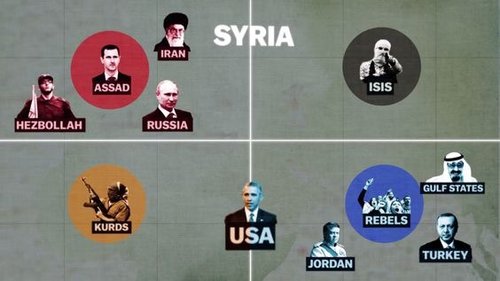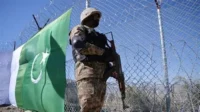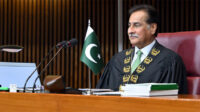Growing reliance on proxy warfare has sparked widespread concern, especially as Western countries combat ISIS by equipping moderate Syrian rebels and Kurdish peshmerga with weapons, funds, and resources instead of directly intervening.
Russia’s annexation of Crimea in 2014 similarly alarmed Western leaders, who feared Moscow was seeking regional dominance through subtle but forceful actions. Russian “volunteers,” whom President Putin claimed were unaffiliated with the state, took control of crucial areas in eastern Ukraine, further heightening these concerns.
Khamenei unwell, Iran might have secretly elected its next supreme leader
Pakistan ready to ease Team India’s concerns, says PCB chief
18 Girls Were Late For School Assembly, Teacher Chopped Their Hair
For more such opinions & blogs, click here.
This strategy reflects principles from Sun Tzu’s The Art of War, which advocates winning without direct combat by exploiting weaknesses rather than confronting strengths. Critics often view indirect warfare as merely avoiding conflict, but it can be better understood as “war displacement,” where influence is asserted through indirect means. Liddell Hart pioneered this concept in 1929 and elaborated it in multiple later works, with his influential book, Strategy: An Indirect Approach, marking a key moment in military theory in the West, according to historian Brian Holden Reid.
Proxy warfare allows a nation to indirectly pursue its interests by providing arms, funding, and support to external groups, often militias or allied national forces, without committing its own troops. This approach extends beyond traditional conflict forms like insurgency, creating a web of relationships and strategies that are both overt and covert. Proxy conflicts frequently occur in settings where states and non-state actors seek to expand their influence—sometimes even through cyberspace. Historically, nations have capitalized on localized crises, such as civil wars, to provoke larger geopolitical shifts, often to counter rival ideologies or power.
In many cases, proxy forces serve as an appealing option for countries facing military recruitment challenges and limited defense budgets. Outsourcing military operations enables these states to exert power indirectly without the need for a substantial direct presence.
ZONG 4G launches special yatra packages for Sikh pilgrims
Defence exhibition ‘IDEAS 2024’ begins in Karachi tomorrow
Envoy invites Chinese companies to invest in Pakistan
The U.S., influenced by the prolonged costs of the War on Terror, has shown reluctance to engage in large-scale, regime-change wars, favoring proxy engagements instead. Such a strategy minimizes U.S. political and military exposure and avoids repeating prior mistakes, especially in the Middle East. The Trump administration, reflecting a neo-isolationist stance, has avoided extensive military commitments, though it remains unclear whether it will turn to proxies more as a tool for safeguarding U.S. interests abroad.

China and Russia also play significant roles in shaping the future of proxy warfare. As China’s global power rises, it faces decisions on how to project influence without undermining its trade relations. Russia’s reliance on proxies in areas near NATO’s borders, like Crimea, has led to Western policy dilemmas, as indirect aggression complicates straightforward responses.
We cannot ignore Iran & Saudi Arabia both of which have engaged in gaining global influence for their brand of Islam.
Overall, these developments suggest a world where indirect, multi-layered conflicts are increasingly common, underscoring a global shift toward more complex and uncertain security challenges-the world has changed, and not for the better!
For more such opinions & blogs, click here.
Banks start receiving Hajj applications from today
Death anniversary of Pervaiz Malik being observed today
3rd T20: Australia beat Pakistan by seven wickets
PM directs to expedite action against tax evaders
The writer is a lawyer, academic and political analyst. She has authored a book titled ‘A Comparative Analysis of Media & Media Laws in Pakistan.’ She can be contacted at: yasmeenali62@gmail.com and tweets at @yasmeen_9
Stay tuned to Baaghi TV for more. Download our app for the latest news, updates & interesting content!






